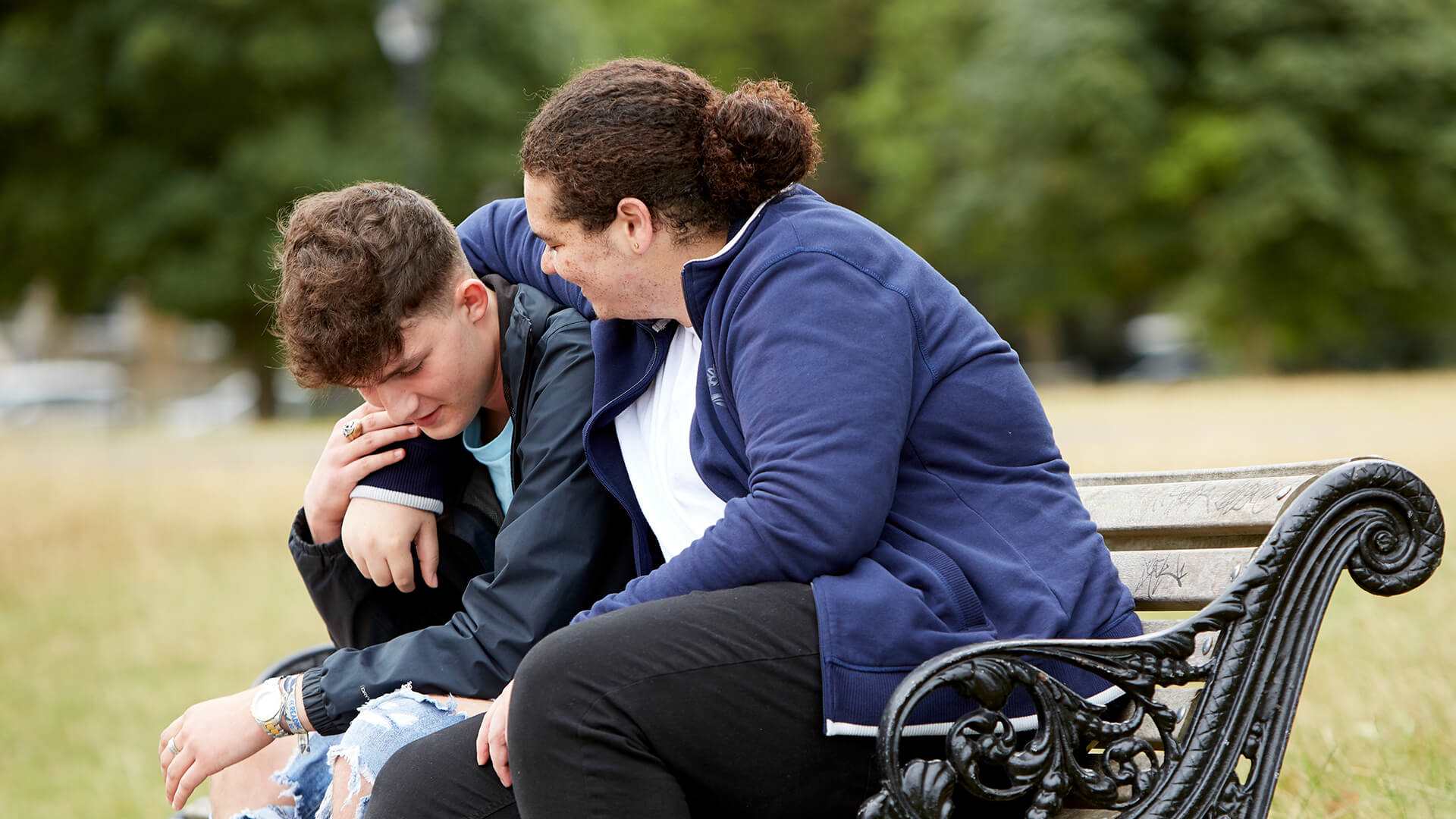Topics mentioned: dating and relationships, OCD, counselling and therapy, anxiety
About: Ella shares her experience of OCD, tips on maintaining healthy relationships and how to open up to people you trust about your mental health.
I was diagnosed with obsessive compulsive disorder (OCD) at 13. It had been a nameless struggle for as long as I can remember, but finally being told what it was and being given strategies to help me cope felt like a huge achievement.
Others may not always understand and that can be frustrating, but finding confidence in yourself can often help you cope with other people’s judgement.
Since then, I have gone through cognitive behavioural therapy (CBT) and exposure response prevention (ERP) therapy, seen my OCD take various forms, and become a lot more self-aware when it comes to my own mental health. This has helped me feel much more prepared for whenever the often misunderstood illness rears its ugly head. I now very much accept my illness as a part of me.
However, despite being so confident in it myself, this is not always the case when discussing OCD with others. The effects of OCD on relationships and the difficulty in opening up to your loved ones is something I have faced more in recent years. I’d like to share my tips on how to maintain healthy personal relationships and how to, if you feel ready, tell those you feel comfortable with about what you are facing.
If you feel up to it, try to educate others about the illness. It helps break the stigma and can help them become more aware of how best to support you.
Stigma and OCD
OCD is a highly stigmatised mental illness, with the image of the ‘neat-freak germaphobe’ often sticking in people’s minds. While germaphobia can very much form a part of one’s suffering, it is not applicable to every individual with OCD (I, for one, am incredibly messy).
OCD is the existence of unwanted intrusive thoughts of varying natures and the need to complete compulsions, either physical or mental, in order to ‘neutralise’ the negative thought. Unfortunately, this is not what most people think of when you tell them about your diagnosis. This can make you feel misunderstood or invalidated when symptoms don’t match up to someone else’s expectations. Most of the time, the main issue here is simply a lack of education.

If you feel up to it, try to educate others about the illness. It helps break the stigma and can help them become more aware of how best to support you. Of course, this isn’t at all your responsibility and if you don’t feel comfortable doing so then that’s completely understandable. In this case, the advice I would give is to become as educated as you can and give yourself as much love and patience as possible.
Others may not always understand and that can be frustrating, but finding confidence in yourself can often help you cope with other people’s judgement.
The instinct can be to withdraw from your loved ones to ‘protect them’.
Open up to people you trust
The intrusive thoughts associated with OCD can be incredibly frightening, often focussing on taboo subjects and making you believe them. The instinct can be to withdraw from your loved ones to ‘protect them’. What’s important here is that these thoughts are what experts call “ego-dystonic”, meaning that they go against your values, which is why they are so upsetting.
Of course, it can still feel isolating having these thoughts, as by nature they feel difficult to share, resulting in you feeling that you are keeping secrets.
I still struggle with this, but I continually remind myself that I have no obligation to share these thoughts, and it doesn’t make me a bad person to not do so. However, it can be helpful to open up if you feel safe to do so.

In this situation, make sure you find people you trust, who will listen to you and will try to understand. I’ve found that simply communicating how OCD works to loved ones can often make you feel closer and save you from the isolation that OCD can often draw you into.
There are some great accounts on Instagram with easy guides on how to explain it and support those with it. I recommend @ocddoodles and @sophiebrainscribbles.
It’s important to remember that, as isolating and terrifying it can seem, you don’t ever have to be alone in facing this.
Intrusive thoughts and relationships
OCD can also target your relationships head on, causing you to have persistent intrusive thoughts about specific people, making even being around them a triggering situation. This is utterly horrid and can be tricky to explain. But therapy can really help.
Often when intrusive thoughts target a specific area, it’s easy to believe you will never be able to enjoy this thing again. But with a lot of courage and trust, usually the best way to take OCD down is to stare the intrusive thoughts in the eye and do what you want to do anyway. OCD may have directed your anxiety towards this person, but as long as you are willing to fight (at your own pace of course) this will pass and you will get your life and relationship with them back.
I hope that my thoughts on how various aspects of OCD and attitudes towards it can affect relationships can be of help to you. It’s important to remember that, as isolating and terrifying it can seem, you don’t ever have to be alone in facing this.
More information and advice
We have tips and advice to help you find the support you need. Take a look at our guides.
Where to get help
However you're feeling, there are people who can help you if you are struggling. Here are some services that can support you.
-
OCD Action
Offers support and information to anybody affected by obsessive compulsive disorder (OCD).
- Opening times:
- 9:30am - 8pm, Monday - Friday
-
Childline
If you’re under 19 you can confidentially call, chat online or email about any problem big or small.
Sign up for a free Childline locker (real name or email address not needed) to use their free 1-2-1 counsellor chat and email support service.
Can provide a BSL interpreter if you are deaf or hearing-impaired.
Hosts online message boards where you can share your experiences, have fun and get support from other young people in similar situations.
- Opening times:
- 24/7






